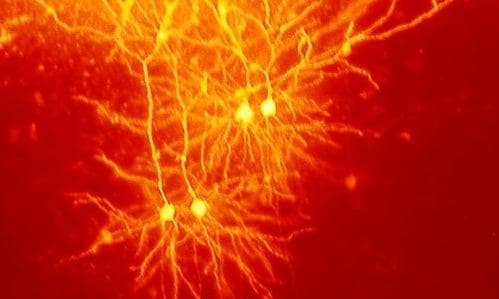Advertisement
Scientific American: Brain Cells Made From Urine

Stem cells used to be big news, back when there was hot political controversy around using embryonic cells for potential disease cures. That heat has abated but among the quieter headlines about scientific progress on getting cells to do our bidding, this one in Scientific American is irresistible: Brain Cells Made From Urine.
And the sub-head: "Human excreta could be a powerful source of cells to study disease, bypassing some of the problems of using stem cells, such as the risk of developing tumors and difficulties in obtaining blood samples from children."
The report begins:
Some of the waste that humans flush away every day could become a powerful source of brain cells to study disease, and may even one day be used in therapies for neurodegenerative diseases. Scientists have found a relatively straightforward way to persuade the cells discarded in human urine to turn into valuable neurons.
The technique, described online in a study in Nature Methods this week, does not involve embryonic stem cells. These come with serious drawbacks when transplanted, such as the risk of developing tumors. Instead, the method uses ordinary cells present in urine, and transforms them into neural progenitor cells — the precursors of brain cells. These precursor cells could help researchers to produce cells tailored to individuals more quickly and from more patients than current methods.
Read the full story here.
This program aired on December 12, 2012. The audio for this program is not available.
